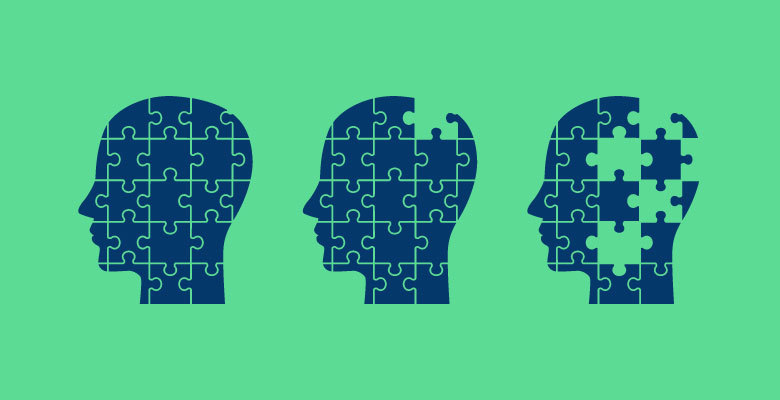Rewriting the Dementia Narrative


By, Dr Cecilia Chan (013-4384388)
Gerontologist, Dementia Advocate and Activist
I have been reflecting a lot these days about how dementia is viewed in our society. We are ingrained through the media, fundraising campaigns, movies, and the literature to fear this dreadful disease and this fear is magnified until currently it is the most feared condition globally. Often, we refer to those living with dementia as the “living dead” or “zombies’ as though they have disappeared or passed away and are no longer with us. When we look at the person as merely the disease as the worst thing that can happen to anyone, it affects the way we relate to those with dementia.
Let me share a real story that happened recently. I bumped into a senior nurse at a hospital and she told me that she was on her way to see the Psychiatrist to get sedation for her “demented patient”. She was ranting about how her “demented patient” was refusing baths, and food and was aggressive when they insisted. I probed further, “ why do you think she behaved in such a way?”, to which she immediately replied, “ …because she has dementia, of course”!
Can we see the problem here? The current narratives of dementia break my heart. We have ‘medicalized’ their attempts to tell us their unmet needs and labelled their attempts as behavioural psychological symptoms of dementia (BPSD). Like my nurse friend, it prompts us to look for a medical solution, generally a drug, which most often leads to other complications.
I find it ridiculous that we expect people living with dementia to ‘behave’ in a ‘socially acceptable way’ as regarded by us. It is akin to expecting someone who is paraplegic to start walking or someone who is on renal dialysis to urinate.
When we are unable understand their daily attempts to communicate a need to go for a walk, search for a misplaced item or let us know that they are cold or hungry, tired or bored; when they are unable to express by words or their words make no sense according to us, we label these communications as symptoms of the disease.
Just google the word dementia and we are bombarded with information that represents persons with dementia as ‘‘doomed’’ and ‘‘socially dead.’’ Search for photos of dementia and they will depict pforlorn-looking old people, staring into nothingness or pressing their heads in great misery. Often their face is fading away and their heads are blown away. This tragic narrative and perspective perpetuate
misunderstandings about dementia resulting in stigma, oppression, and discrimination against persons living with dementia. Persons with dementia are among the most stigmatised around the world due largely to dominant assumptions in public narratives. Labels such as “victim”, ‘living dead”, “burden”, and “ empty shell” are demeaning and derogatory, resulting in dehumanising attitudes towards those living with dementia. The famous term “BPSD”: is especially invalidating typecasts that do not reflect the actuality of behaviour or dementia. Each one of us expresses ourselves behaviourally throughout our lives, so I wonder why we so often judge people who live with dementia based on their behaviour. When we label people by their behaviour and characteristics can end up limiting our curiosity about a person. Labels end up conveying something absolute that is difficult to navigate away from once it’s decided.
Could it be that our current opinions and treatment of people with dementia are the very culprit that causes all of us to be so fearful of dementia? If we change our view to see people with dementia as having a disability and change our approach to support them by focusing on their strengths instead, perhaps we will lessen our fear towards dementia.
A friend was reeling from her mother’s diagnosis of Alzheimer’s disease. She told me she is angry that her mother has it, that it will erode her mother’s dignity, and that her life will become meaningless by this condition and is devastated that she had forgotten the lyrics of her favourite song. My friend was exasperated because her mum is not interested in “anything”. As I spent time with her mum, I played her favourite song in the background as we worked on the 12 piece puzzle. She could not sing but she could hum. She could not remember the lyrics but she could follow the tune and the rhythm of the song. We were both humming along as we navigated the puzzle. The second time I played the same song, she was whistling to it and by the third time, the lyrics flowed through.
When we shift focus from what’s lost to what’s available and concentrate on what can be done rather than what can’t, it leads to possibilities. This spirit of embrace could perhaps present a new dementia story – a story of hope, joy, and meaning. For my friend’s mum, this brand new story is a story of a new connection and a new form of communication. This new story could eliminate isolation due to social stigma and enable connection by embracing the diversity of mankind. When my friend’s mum smiled and hugged me after spending meaningful time together, it brought a new hope and this new story has the power to challenge the negative narrative that fuels dehumanisation, segregation, and institutionalisation of people living with dementia.
Allow me to end by quoting Dr. Allan Power, who shared that “We must change our minds about people whose minds have changed,”


